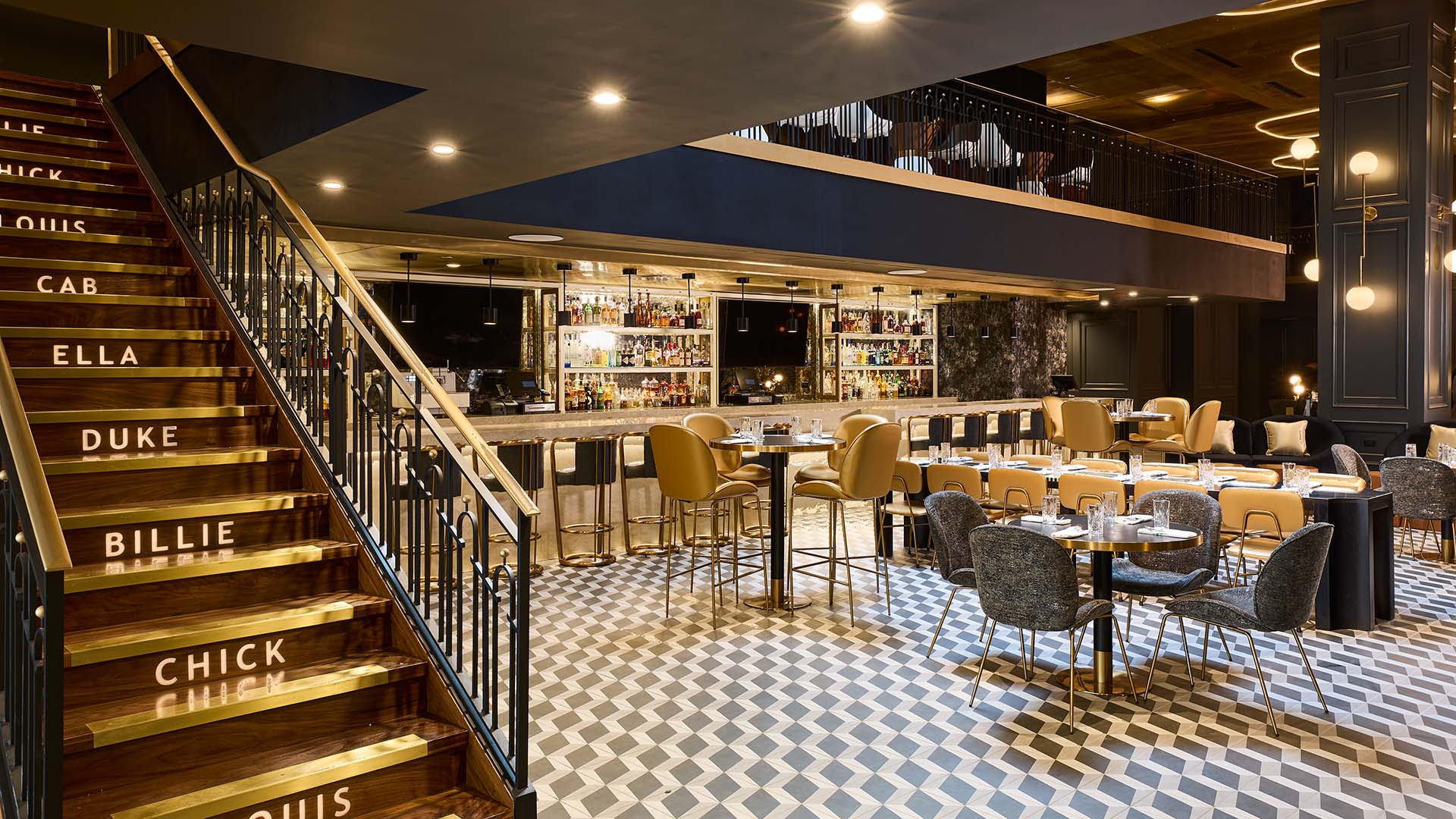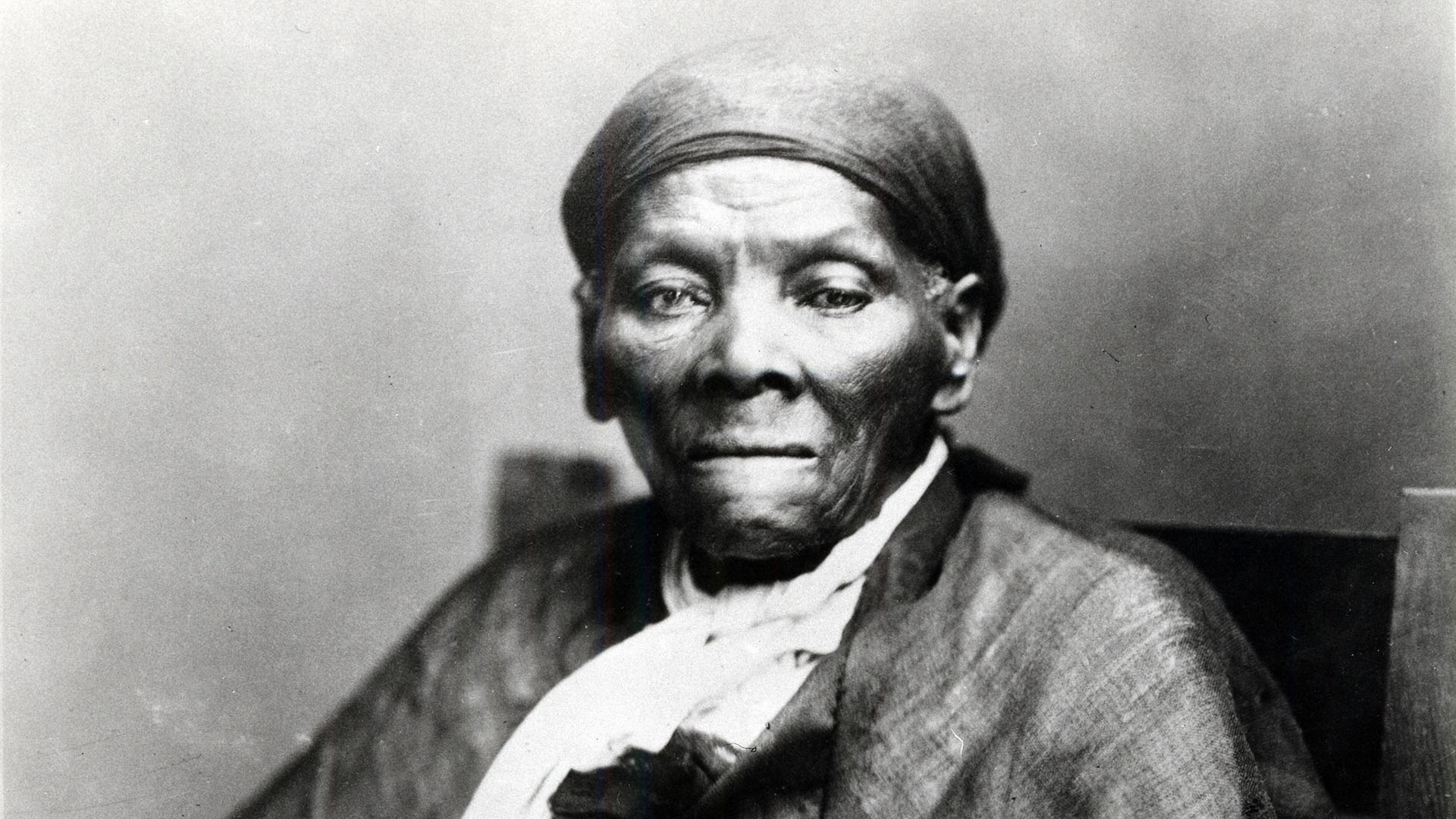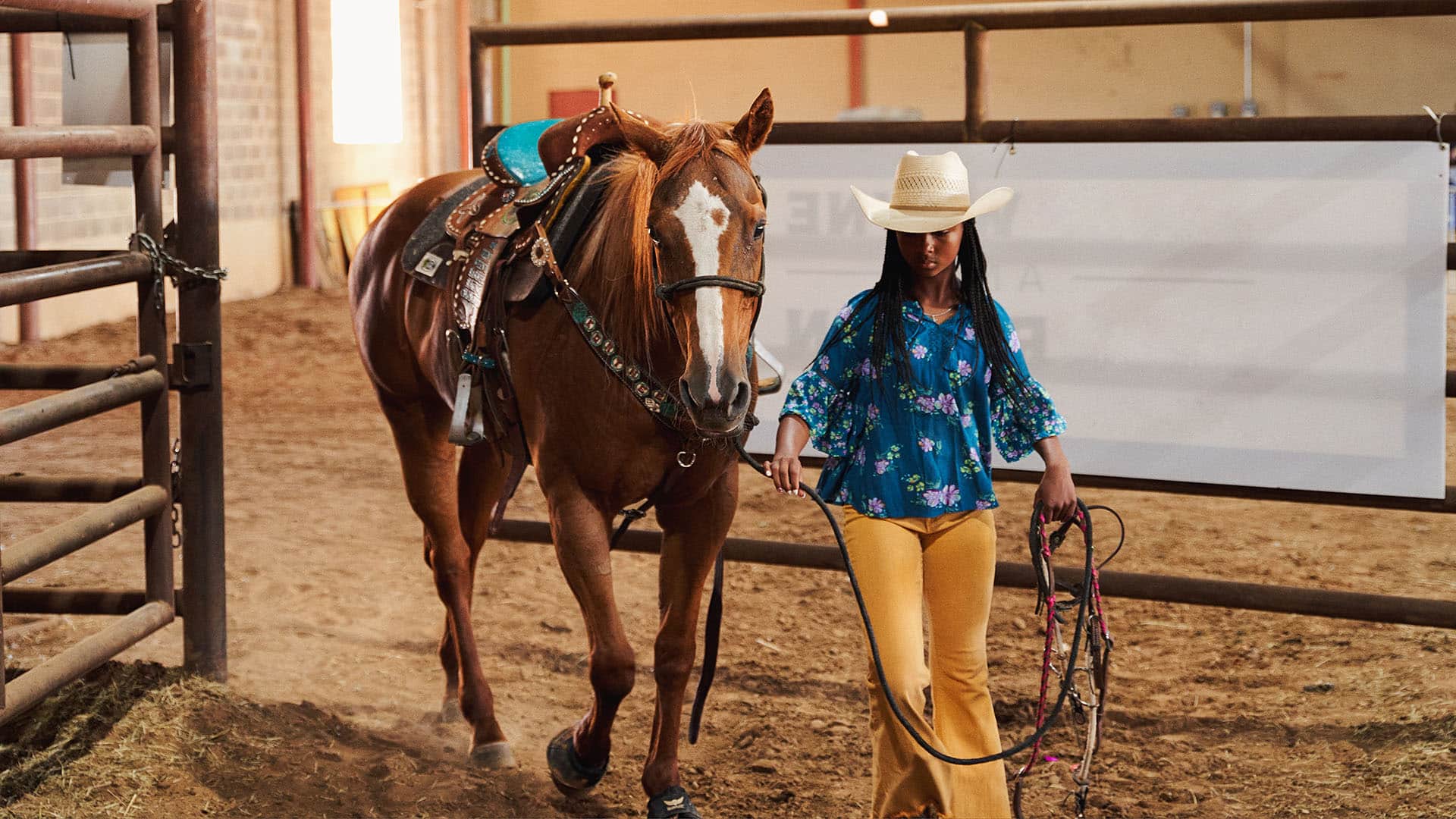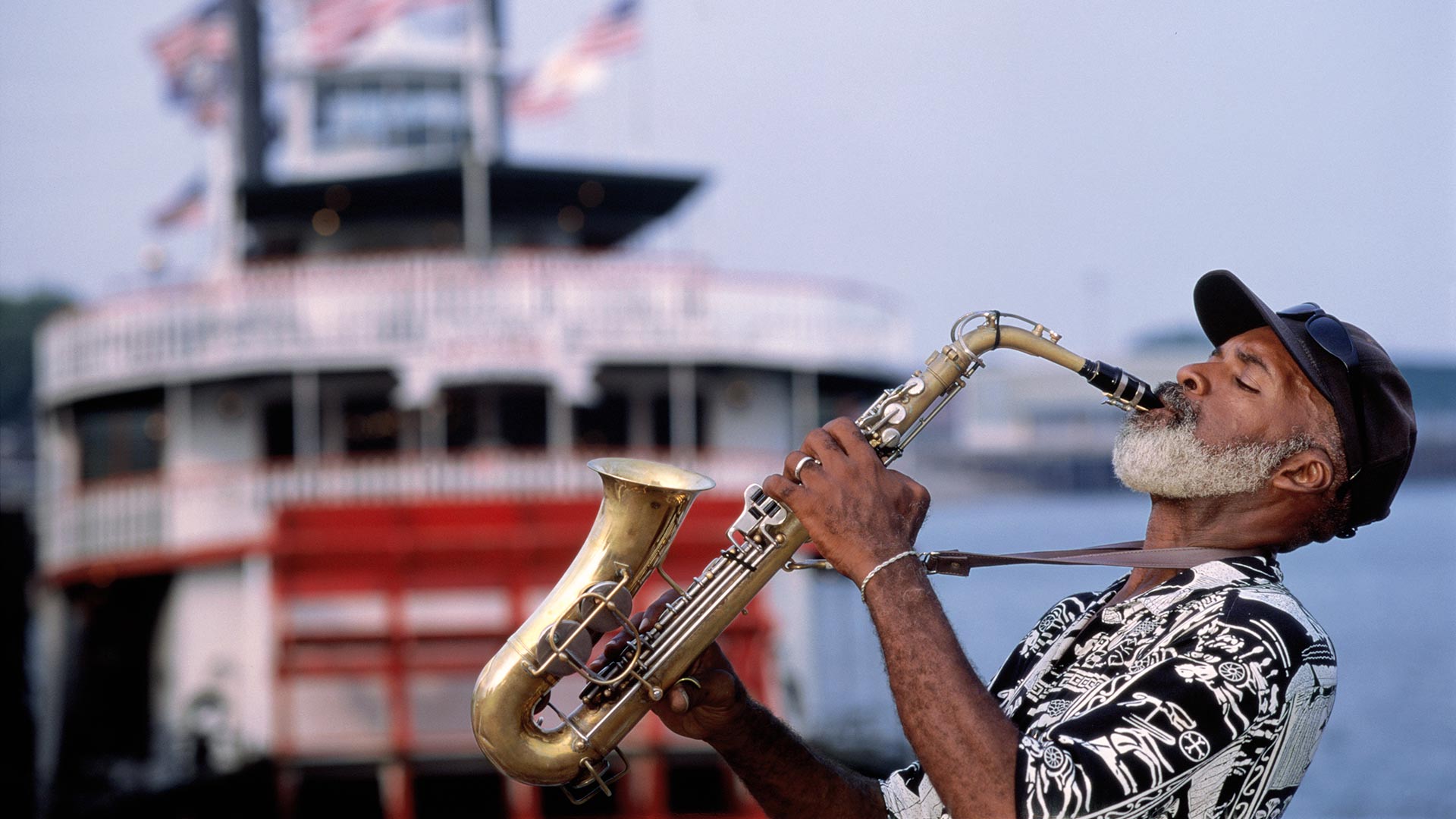
Soak in the sounds on this epic road trip. (Photo: Getty Images)
Black TravelFind Beats and Black History Along America’s Music Highway
By Lynn BrownIt’s not at all an exaggeration to say that the Mississippi Delta is the birthplace of American music, more specifically, the blues. If this is true, then starting a music-forward road trip in New Orleans, driving up the Mississippi Blues Trail to the Blues Highway and north to Memphis is arguably the best way to experience both the history of this genre and the music itself.
As always, check for travel restrictions and closures before planning your trip.
Begin: New Orleans
Start your drive in New Orleans, at the mouth of the Mississippi. The Big Easy is perhaps the most popular city on this trip, one known to be steeped in music and history — especially as it relates to the birth of jazz.
Exactly when jazz music was first played in New Orleans is still disputed — some credit the Dixieland bands that played the barrooms of Storyville, the city’s old red-light district. Others say the famous musical style originates with the drumbeats of African religious ceremonies in Congo Square.
Regardless of which theory you may subscribe to, there are opportunities to both hear the music for yourself and learn more about it in the city today. History buffs should check out the New Orleans Jazz Museum, located in the Old U.S. Mint. The museum uses interactive exhibits, educational programs and performances to tell the story of this unique art form.
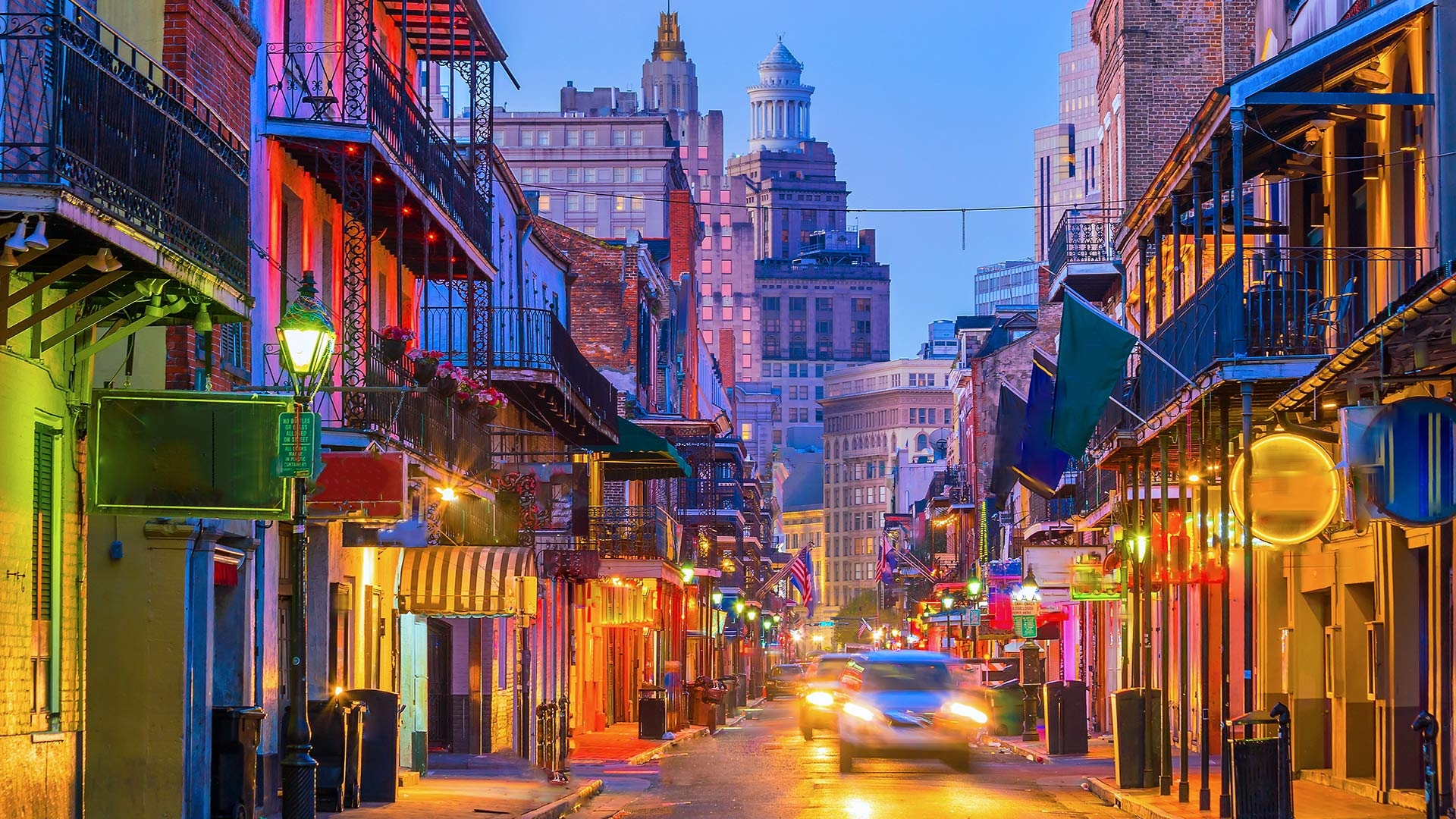
Of course, no visit to the city would be complete without a stroll down Frenchman Street, where you can find a variety of live music venues, several of which are sure to be playing the music that made the city famous on any given night.
NOLA to Jackson, Mississippi
Leave New Orleans and travel east into the state of Mississippi, being sure to stop for a few days in Jackson. In terms of music and Black history, the city of Jackson is best known for Farish Street.
From the mid-1800s to the mid-1900s, this historic district was the center of African American life and featured a plethora of Black-owned businesses, from doctors’ offices to, of course, live music venues.
Segregation and the subsequent Great Migration saw a significant downturn in the area, but recent developments have attempted to bring about a resurgence in this neighborhood, and old classics like the Big Apple Inn, with its authentic Mississippi hot tamales, are still worth a visit.
The Blues Highway
Jackson makes a great jumping-off point onto U.S. Highway 61, better known as the Blues Highway. This route follows the northward movement that many African American former slaves and sharecroppers took toward what they hoped would be better, safer lives farther north.
Many of the best-known blues musicians even followed this route to fame. There are hundreds of historic stops along the Blues Highway, and visitors can easily create a personalized itinerary based around their musical interests, or even around the lives of their favorite blues musicians. Still, there are a few spots that should not be missed.
For one, Dockery Farms, just outside of Cleveland, Mississippi, is considered to be the birthplace of blues. This former cotton plantation once employed Charley Patton, the musician who is widely believed to be the first to make popular what we now call blues music — originally playing picnics on the farm. Today, you can visit the plantation, see outdoor exhibits and attend live performances.
After seeing the birth of the blues, head to the birthplace of perhaps its best-known musician, B.B. King. Be sure to stop in Indianola, Mississippi, to visit the B.B. King Museum. This museum chronicles the life of the world-famous guitarist and gives visitors a good overview of what King and musicians like him had to overcome.
No trip up the Blues Highway would be complete without a trip to Clarksdale, Mississippi. A who’s who of legendary musicians were born and raised in and around Clarksdale, including Muddy Waters, John Lee Hooker and Sam Cook.
The town is also home to the Delta Blues Museum and hosts an annual juke joint festival where blues music is king.
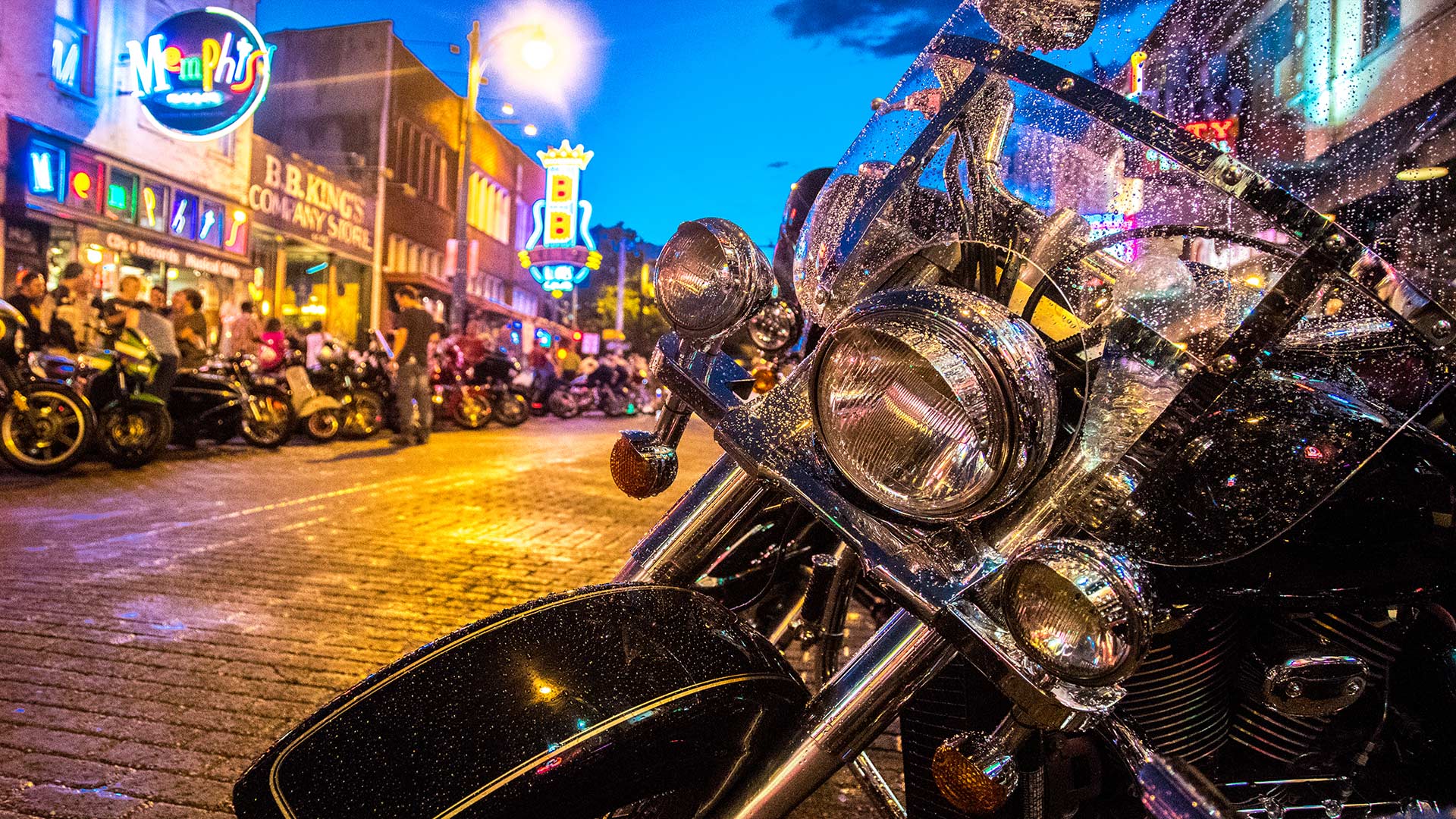
End: Memphis
You’ll end your trip in Memphis. The city is deeply rooted in African American history, ties that are both triumphant and heartbreaking. It was here that many musicians from the Delta met the national audiences that would launch their careers, sometimes even internationally.
But it was also here that Martin Luther King Jr. was assassinated at the Lorraine Motel in 1968. That motel is now the site of the National Civil Rights Museum. Another Memphis must-see is the Stax Museum of American Soul Music. The museum was formerly Stax Records, and the space pays special tribute to the artists who recorded there, like Otis Redding.
And of course, if you’ve traveled the Blues Highway to get here, you can’t leave Memphis without a trip down Beale Street, which features more than 25 clubs, many of them historic and all of them playing music that was once birthed from heartbreak and triumph, in the Delta.





